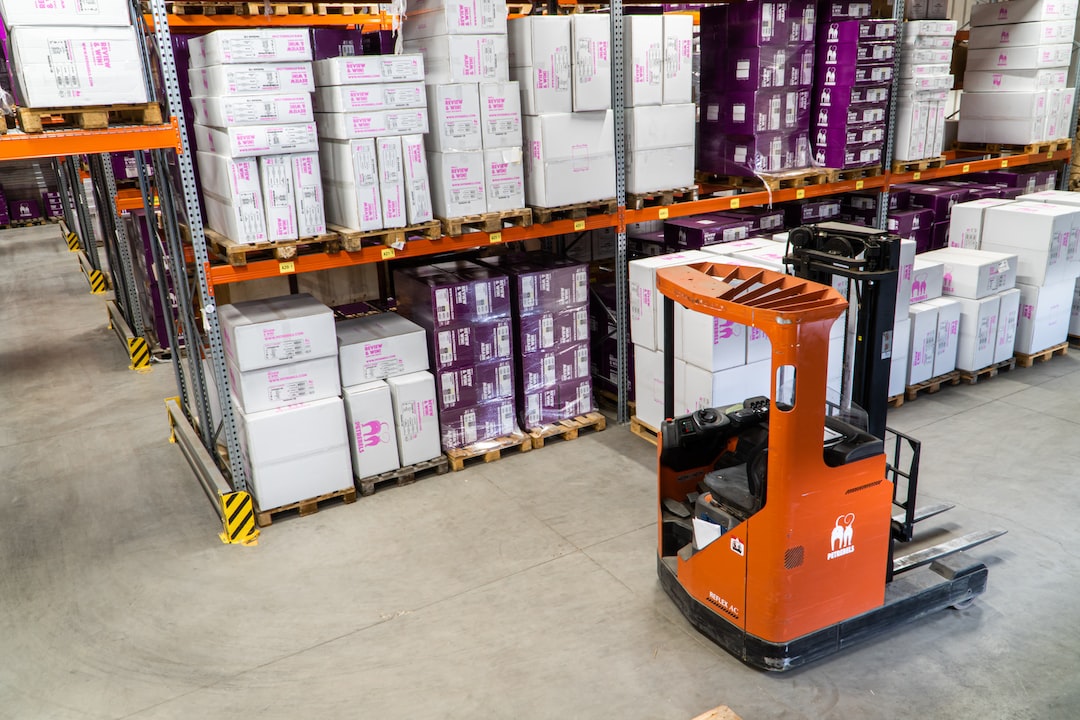10 Invaluable Tips For Keeping Track Of Your Expenses
10 Invaluable Tips For Keeping Track Of Your Expenses
1. Why tracking expenses is important for small businesses
Running a small business is no easy feat. There are a million and one things to keep track of, from inventory to customers to expenses. It can be easy to let things fall through the cracks, but when it comes to your business’s bottom line, tracking expenses is one task you can’t afford to neglect.
Keeping tabs on how much you’re spending is crucial to ensure your business is efficient and profitable. To help you get started, we’ve put together 10 invaluable tips for tracking expenses. From setting up a system to knowing what to track, these tips will help you take control of your business’s finances and keep your spending in check.
https://unsplash.com/@petrebels
2. 10 tips for tracking expenses
2. Take notes of each expense
No matter how small or large, it’s important to jot down every expense that occurs so that you can keep track of them. Even if you don’t have an official accounting system yet, it’s a good idea to just jot down every expense so you have a decent record of where your money is being spent. This can be done with pencil and paper or through a spreadsheet.
3. Set up a tracking system
Once you’ve been taking notes of your expenses for a while, you’ll want to set up a tracking system of some type. This can be anything from a simple spreadsheet to a cloud-based software program. Either way, it should include columns for item names, quantities, prices, and total cost.
4. Separate cost categories
Separating your expenses into different categories (e.g. overhead, supplies, advertising, etc.) can make things easier to track. This can be done with a tracking spreadsheet or through software packages that offer sorting features.
5. Track unpaid vendor invoices
Keeping track of unpaid vendor invoices is key to keeping your business financially sound. Not only will you be able to track how much you owe various contractors and suppliers, you'll also be able to make sure that payments have been received and that all accounts are up to date.
https://unsplash.com/@petrebels
1. Keep accurate records
Keeping accurate records of expenses is critical to understanding your current financial situation. This involves not only tracking all of the items that you have purchased, but also their costs and payment status.
Accurate records can help you manage your cash flow as well as identify cost cutting opportunities and/or areas for cost savings. It is also important to track both overhead and direct costs, as well as capital expenditures.
When managing your records, it is essential to be methodical and organize your data in a way that makes it easy to access and analyse. Keeping multiple copies of your records is also advised so that you have the most up to date information at all times.
In order to ensure accurate records, small business owners should invest in good quality accounting software that is capable of handling complex bookkeeping tasks and make sure that their data is regularly backed up. It is also recommended that you keep a paper trail of any major purchases and/or large transactions.
https://unsplash.com/@petrebels
2. Know what expenses are tax-deductible
It is important to know which expenses are tax-deductible in order to reduce the amount of taxes you have to pay. Knowing what expenses are tax-deductible can also help you determine your annual adjustments and/or deductions. This is especially true if you are self-employed or a small business owner.
The Internal Revenue Service (IRS) considers some business expenses to be tax-deductible. Here are some of the most common types of business expenses that may be deducted:
1. Travel: The costs of business-related travel, such as airfare, hotel accommodations, meals and car rentals, are all generally tax-deductible.
2. Office Expenses: This includes the costs associated with renting, leasing or buying office space, furniture, equipment, and supplies.
3. Advertising: All costs associated with advertising and marketing, including print, radio, television and digital advertising, are tax-deductible. It is important to note that the costs of any giveaways or promotional items are also deductible.
4. Professional Fees: All professional fees, including those for accounting and legal services, are tax-deductible.
5. Business-related Insurance: Most business-related insurance premiums are deductible, including general liability, property, and workers’ compensation insurance.
These are just a few common examples of tax-deductible expenses. It is important to speak to your accountant for a complete and up
https://unsplash.com/de/@pickawood
3. Separate business and personal expenses
Separating business and personal expenses when keeping track of your expenses is of utmost importance. Make sure to use a separate bank account and credit card so you can separate your business expenses from your personal expenses. This will make it easier to look back and identify which expenses are tax-deductible and which ones are not.
When it comes to keeping track of your expenses, it is also important to stay organized. Create a system that works for you, whether it’s a spreadsheet on your computer or an app on your phone. Having your expenses easily accessible will make it easier to review and make sure you are taking advantage of all the tax deductions available to you.
It is also important to keep track of your expenses in real time, so you can keep track of your financial health in the moment. This will help you make smarter decisions throughout the year and not have to play catch up at the end of the year.
In conclusion, separating business and personal expenses is an invaluable tool for keeping track of your expenses. By staying organized, setting up a system and keeping track of your expenses in real time, you can ensure you are taking advantage of all the tax deductions available.
https://unsplash.com/@ageing_better
4. Track expenses through an app or software
Another invaluable tip for keeping track of your expenses is by using an app or software. There are plenty of money and expense tracking apps available on the market. They will help you with all the aspects of financial health management, from budgeting and expense tracking to investments and savings.
This type of software will help you stay organized when it comes to your expenses. It has the added benefit of allowing to store all your financial information in one place. You can also set budgets and receive alerts when you're nearing your budget's limit. By using an app or software to track your expenses, you can save time and take control of your finances.
In addition, tracking your expenses through an app or software is secure. You can easily back up your information on cloud storage, so your information is safeguarded in the event of a breakdown of the device.
All in all, tracking your expenses through an app or software is a great way to stay organized and monitor your financial health. It will save you time and help you reach your financial goals.
https://unsplash.com/@ageing_better
5. Use a credit card for business expenses
Using a credit card for your business expenses can also be a very beneficial and invaluable tip for keeping track of your money. Keeping track of credit card purchases is easier than manually tracking all the cash payments.
With a credit card, you are able to easily monitor your spending and track the records of all your purchases. This means that you won’t be spending beyond your budget. Credit card companies typically provide regular statements and reports on payments, credit utilization, and other important information, so you can easily keep track of your finances.
In addition, using a credit card for business expenses can help build better credit. By making timely and full payments, you can improve your credit score. This will help you access higher lines of credit and be more attractive to lenders and investors.
Having a credit card for your business is a smart move and can be a great tip for keeping track of your money. Monitor your spending closely, and you will be able to use it to your advantage.
https://unsplash.com/@blakewisz
6. Keep receipts and bills organized
Organizing and filing your receipts and bills is a great way to keep track of your money. Storing these documents somewhere easily accessible—whether it be in a physical file or in the cloud—will help you to quickly and easily locate them when you need them.
It’s best to convert paper documents into digital format whenever possible. Digital documents are easier to organize and store, offering a more efficient and secure document management system.
By keeping all your documents organized, you will be able to identify patterns in your spending, and be able to more easily identify any potential fraudulent activities. This will also help you monitor your business’s income, expenses, and tax liabilities.
Organizing receipts and bills can also be useful when preparing tax returns and filing for business deductions. With everything adequately organized, you can save time and hassle in filing by being able to easily access any information you may need quickly.
Organized documents and bills are an essential element to successful money management. Keeping these properly stored and organized will help you to more effectively and efficiently monitor and keep track of your money.
https://unsplash.com/es/@yl_photography
7. Review expenses regularly
It is important to review your expenses regularly in order to identify any patterns or issues that could be costing you money. Setting a reminder to review your expenses on a regular basis and create a system to track them is a great way to ensure that you stay on top of this task.
Life happens, and expenses can add up quickly, causing you to be more careless with your spending. Being diligent in reviewing your expenses and making necessary adjustments can help ensure that you are not spending more than you are earning.
You can use various software and mobile apps to help you review your expenses and analyze patterns in your spending. These apps can also help to create budgets, allowing you to be more mindful of your spending and create a balance between your income and expenses.
By reviewing your expenses regularly, you can identify any spending issues that need to be addressed, ultimately helping you to stay on top of your finances and achieve your financial goals.
https://unsplash.com/@kenrick
8. Create a budget
Creating a budget is a great way to maintain a good financial position. A budget helps to organize your income and expenses, and enables you to understand where you are spending your money. Creating a budget is also a form of self-discipline as it allows you to keep track of how much money you are spending and plan out where you should be spending your money.
When creating a budget, it’s important to be reasonable with yourself and your budget. Start with a realistic estimate of your monthly income and expenses, and make sure to update it as needed. Make sure to stay up to date on your income and expenses to ensure that you are accurately tracking your spending.
Creating a budget is not only a great way to track your current spending and income, it is also a great tool for long-term financial planning. Financial planning and budgeting can help you reach your financial goals and secure a better financial future. As your budget progresses, you’ll be able to adjust it to fit your current financial needs.
https://unsplash.com/@kenrick
9. Have a system for Owner's Draws
One of the most important tips for keeping track of your expenses is to have a system for owner’s draws as established in your accounting system. It is essential to identify owner’s drawings and to track them in the proper way in order to properly manage your expenses.
Owner’s draws are funds that are transferred from the business bank account to the owner’s personal account to cover certain expenses. This is a common practice and often covers personal expenses such as quarterly taxes, insurance premiums, etc.
For ease of tracking, it is important to establish a system for owner’s draws in the books. This can be set up as a separate account in your accounting software, with each draw being tracked as a separate entry. Tracking the owner’s draws in this way would not only help you to keep track of them but also help to ensure that they are correctly reported on your financial statements.
Having a system for tracking owner’s draws is an invaluable tip for keeping track of expenses, as it enables you to keep an accurate record of where your money is going as well as what is being taken out for personal expenses.
10. Have a way to track inventory
Another great tip for keeping track of expenses is to have a way to track your inventory. Having an efficient system for managing your inventory helps you manage your operating costs more effectively and helps you to maintain accurate records of your expenses.
A good inventory management system provides an overview of all the inventory you have available in your organization at any given time, how much you have on hand and where it is located. It also helps you to set the right pricing, track profits and losses, and to determine when to order new inventory.
Having an effective inventory management system helps to streamline the processes relating to the tracking of your inventory - such as ordering, shipping, receiving, and stocking - and it ensures that no items are missed. By leveraging the inventory management system, you can get a better understanding of what your current and future needs are, which helps you make better decisions.
It is important that your inventory management system is regularly maintained and updated, so that it is always accurately reflecting how much of each product is available and how much it costs. Having an efficient system for tracking your inventory will ensure that you have an accurate record of your expenses and will help to streamline your operations.
For any question, please contact us in OpenTimeClock.com. https://www.opentimeclock.com.
Created with the Personal Edition of HelpNDoc: Full-featured Kindle eBooks generator









